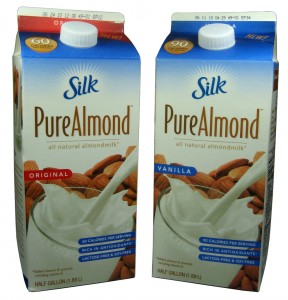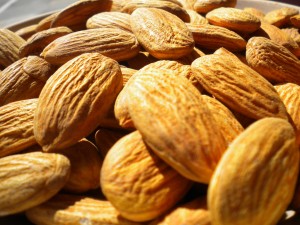These days, most people try to maintain a healthy lifestyle, with organic foods and working out being top priorities. But is it possible that we’ve gotten a little overly obsessed with being healthy? Take almond milk, for example. A year ago, I hadn’t even heard of it, and believe me – I’m one of those health nuts, telling people not to eat this or that because of its lack of nutritional value. But when I immediately substituted dairy milk with almond milk, was I blindly hopping onto another one of those passing health crazes, or is almond milk better for us?
Almond milk gained immense popularity over the past few years, as a substitute for people who are lactose intolerant or vegans. It is essentially a blend of almonds and water, and can be easily made at home, or purchased at grocery stores (but be warned, like all “healthy” foods, it is slightly overpriced). However, people are still unsure as to why it’s healthier than dairy milk.
Let’s start with almonds. Almonds, one of the healthiest nuts in the world, are naturally rich in vitamins and minerals, including calcium, protein, fiber, potassium and magnesium. An article from the Journal of the Science of Food and Agriculture states that almonds contain antioxidants, such as Vitamin E, and help prevent heart disease, lower cholesterol levels, and protect from risk of cancer. They also contain omega-3 fatty acids, which boost overall immune systems and cardiovascular health. In a recent study from the European Journal of Clinical Nutrition, almonds were found to reduce desire-to-eat sensations after consumption , lowering weight gain risk. All in all, almonds are nutritional with many health benefits.
So what about almond milk? Well, like everything, there are pros and cons to drinking it. It contains the same minerals, vitamins, and antioxidants found in natural almonds, and basically has the same health benefits (as long as no additives or sweeteners are added). Compared to dairy milk, it contains fewer calories, saturated fats, and cholesterol, making it better for people on diets or with heart problems. However, it contains less calcium and protein than dairy milk; therefore, to maintain a healthy level of these, other sources of protein and calcium are necessary. Furthermore, it is not a substitute for almonds – unfortunately, there are only about four to five almonds in one cup of milk. (So if you trying to attain the same amount of nutrients in a glass of milk as a handful of almonds, I recommend you go for the almonds.)
That being said, almond milk isn’t just a passing health craze…it really is good for you! As long as you replace the calcium and protein found in dairy, almond milk is a great substitute for dairy milk. But just remember to eat more almonds in general – they are the real nutritional powerhouse here.
Check out this upbeat video on the health benefits of almonds below:

YouTube video courtesy of: Everyday Health
Posted by: Krystyna Pangilinan


